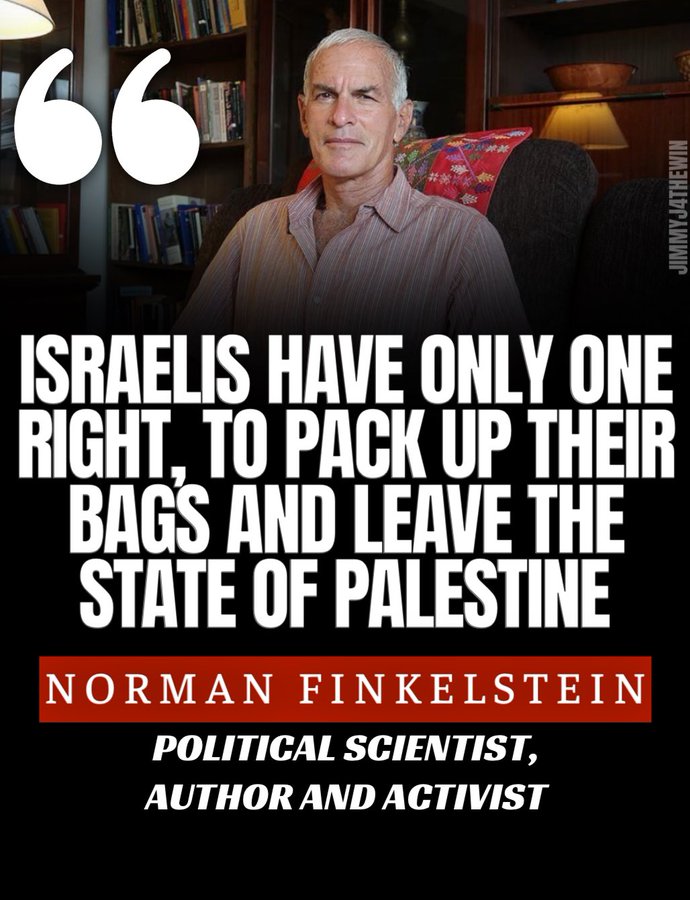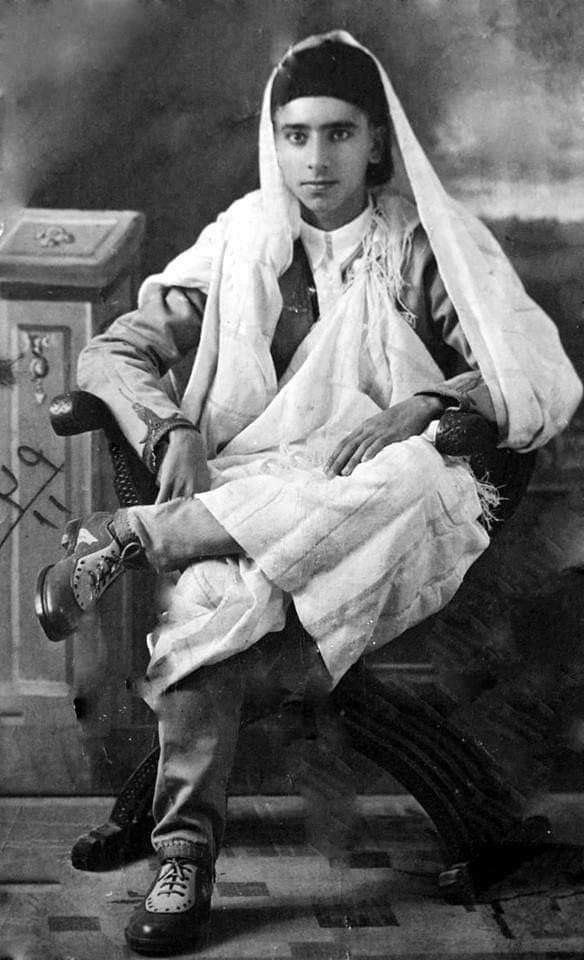In the world of sports, the Olympics represent the pinnacle of achievement, bringing together the world’s best men and women in dozens of disciplines to push the limits of athletic prowess with each passing Games.
While Olympians from most countries prepare for years to put on their best performance at the largest sporting event, those from Palestine must face the double challenge of surviving periodic Israeli military incursions. Over the decades, these have cut short the athletic journeys of hundreds if not thousands of aspiring sportspeople in the occupied territories according to Anadolu.
Hassan Abu Zaitar, Shaker Safi, and Basem Al-Nabahin are just a few of those killed by relentless Israeli airstrikes and ground attacks that have devastated the Gaza Strip since Oct 7 last year.
With the Paris Games starting on July 26, Israel’s killing of athletes and players in Gaza, along with its destruction of the enclave’s sports facilities, has triggered mounting demands to disqualify Israel from the tournament as activists and spectators question the legitimacy of its participation.
Palestinian writers and sports commentators contend that Israel’s Gaza onslaught, which has killed nearly 40,000 Palestinians, also represents an attempt to eliminate sports and athletic achievement.
“It’s a genocide … ethnic cleansing of the Palestinian people, and the attacks on athletes and sports in particular in the Gaza Strip are all very systematic attacks to obliterate and erase sports in the territory,” Abubaker Abed, a Gaza-based sports journalist told Anadolu.
Israel’s intentions go further than eliminating Gaza’s current athletic capacity, according to writer and lecturer Abdaljawad Omar, who held that it was part of a concerted effort by Tel Aviv to undermine Palestinians’ achievements in all areas, with sports being no exception.
“Israel systemically seeks to ensure that Palestinian accomplishments and potential in all realms remain dampened and always dwarfed by its own achievements.
“This applies to political, intellectual, economic, and literary fields, where historically, many talented and highly accomplished Palestinians have been targeted. Sports is no exception in this sense,” he explained.
Killing of athletes
The situation is “extremely worse” for athletes in Gaza, according to football journalist Abed, adding that many players have been killed in the territory.
According to the Palestinian Olympic Committee and Palestine Football Association, about 400 athletes have been killed since Oct. 7, with the football association noting that the war has claimed 245 players in that sport alone, including 69 children and 176 young men.
Some 33 scouts and 70 members of sports unions have also been killed.
According to the association, Israeli forces have also detained players, including 12 in the occupied West Bank.
Israel’s attacks have killed several Olympians as well. Sixty-nine have been killed during Israel’s ongoing assault, says the Palestinian Campaign for the Academic and Cultural Boycott of Israel, launched in 2004.
Destruction of sports facilities
Besides athletes, sports facilities also have not been spared. Dozens, including gyms, training halls, fields, and stadiums, have been damaged or destroyed since Oct. 7.
A total of 42 facilities have been leveled in Gaza, while seven were destroyed in the West Bank, says the Palestinian Football Association.
Abed pointed out how Israel has destroyed football schools, including the Al-Wahda Academy and the Champions Academy, which “was one of the most promising football projects” in Gaza.
He pointed out how Israel has eradicated talent in football, the most popular sport among Gaza’s residents, leaving only one stadium, the Al-Dorra stadium, intact out of the enclave’s 10.
Israeli forces have been seizing stadiums in Gaza and turning them into detention centers.
Human rights monitor Euro-Med highlights that the Israeli army turned the Yarmouk Stadium in Gaza City into a detention center “to hold and humiliate hundreds of Palestinians, including children, shown naked and stripped of their clothes in footage published by the Israeli media in December 2023.”
A report by the group published in May indicates that facilities bulldozed and destroyed include “300 five-a-side courts, 22 swimming courts, 12 covered sports halls for basketball, volleyball, and handball, and six tennis stadiums.
“Twenty-eight sports and fitness centers have been targeted, damaged, and destroyed.”
Death of prominent athletes
Israel’s offensive has also caused the death of prominent players in Gaza, including champions of tournaments in ……
This includes Palestine’s first-ever Olympian and flagbearer, Majed Abu Maraheel, who died due to kidney failure in a refugee camp in June.
The 61-year-old Olympic distance runner died as Israel’s ongoing blockade of humanitarian assistance left many, including Maraheel, lacking medical treatment and facilities.
Maraheel had competed in the men’s 10,000-meter race at the 1996 Atlanta Olympic Games.
In January, the Palestinian Olympic football team’s coach Hani Al-Mossader was killed in an Israeli airstrike.
The same month, Nagham Abu Samra, a karate champion who was set to participate in the Paris Olympics, died in a hospital in Egypt after succumbing to her injuries.
She had been severely wounded by an Israeli attack that left her with head injuries and led to the amputation of one of her legs.
Prominent football players have also been killed in Israeli attacks.
In March, Mohammed Barakat, nicknamed the “legend of Khan Younis,” died in a raid targeting him in the southern Gaza Strip city.
The 39-year-old forward, who scored 114 goals, had played for several football clubs including the Khan Younis Youth Club, which he captained. He also played in the occupied West Bank and Jordan, including Al-Wahdat, as well as Al-Shoalah, a Saudi club.
Hazem Al-Ghalban was also killed by Israeli an bombing in Khan Younis. According to Abed, the 26-year-old defender scored seven goals in his career and “put on stellar displays with his team before Oct 7th, placed 3rd in the league.”
Shadi Abu-Alarraj, a renowned goalkeeper for the Khan Younis Youth Club, was killed last week.
“The death toll among athletes continues, unfortunately,” says Abed.
‘Apartheid’ Olympics
With hours left until the Paris 2024 Games’ opening ceremony, experts are still questioning the International Olympic Committee’s (IOC) decision to keep Israel in the tournament.
“Athletes, whether footballers … whatever the sport is, they don’t belong to political factions … they are targeted and are illegitimate targets for Israeli forces, and this is absolutely prohibited by all international laws and all FIFA regulations,” says Abed.
He argued that Israel’s actions show that it lacks the Olympic values of peace, tolerance, forgiveness, love, and sportsmanship.
“So, how could Israel even participate in the Olympics?” he asked.
Russia, meanwhile, has been banned from Olympic and FIFA tournaments after it launched its war on Ukraine in 2022, noted Abed, who maintained that Moscow’s actions in that conflict were mild compared to the devastation Israel has caused in Gaza.
This “disgraceful stance,” he asserts, revealed the hypocrisy of the IOC, as well as the world governing body for football.
The organizers of this year’s Olympics have said their decision to keep Israel in the Games while upholding the ban on Russia and Belarus is due to Moscow’s annexation of Ukrainian territory, while Tel Aviv has not formally seized territory in Gaza.
Fadi Quran, senior director at US-based rights group Avaaz, said the Olympics and the IOC’s current leadership will be remembered for “turning a blind eye to a country committing what the ICJ ruled is a plausible genocide, and said is apartheid.”
He was referring to a preliminary ruling by the International Court of Justice that recognized genocide as a plausible risk in Gaza. Israel stands accused of genocide at the top UN court, which in its latest ruling has ordered Tel Aviv to immediately halt its operation in the southern city of Rafah, where over a million Palestinians had sought refuge from the war before it was invaded on May 6.
Quran expects that athletes will protest Israel’s presence at the Olympics and fans will boycott events where the Israeli flag is raised.
“Now that the IOC has refused to ban Israel, activists across the world will take action to ensure that the Paris Olympics are branded as the ‘Apartheid Olympics,’ or ‘War Crime Olympics’,” he said.
According to Abed, it will take a decade to revive sports in the Gaza Strip.
“The war on Gaza has changed everything. The war on Gaza has killed the dreams of many.”

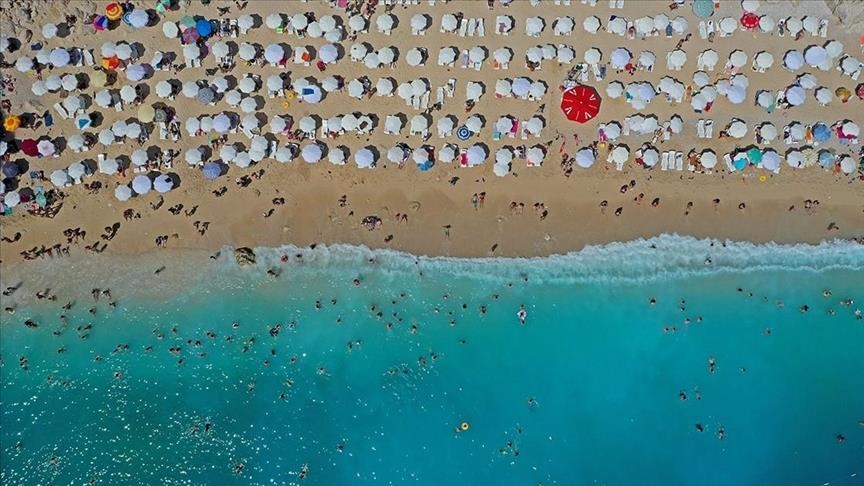
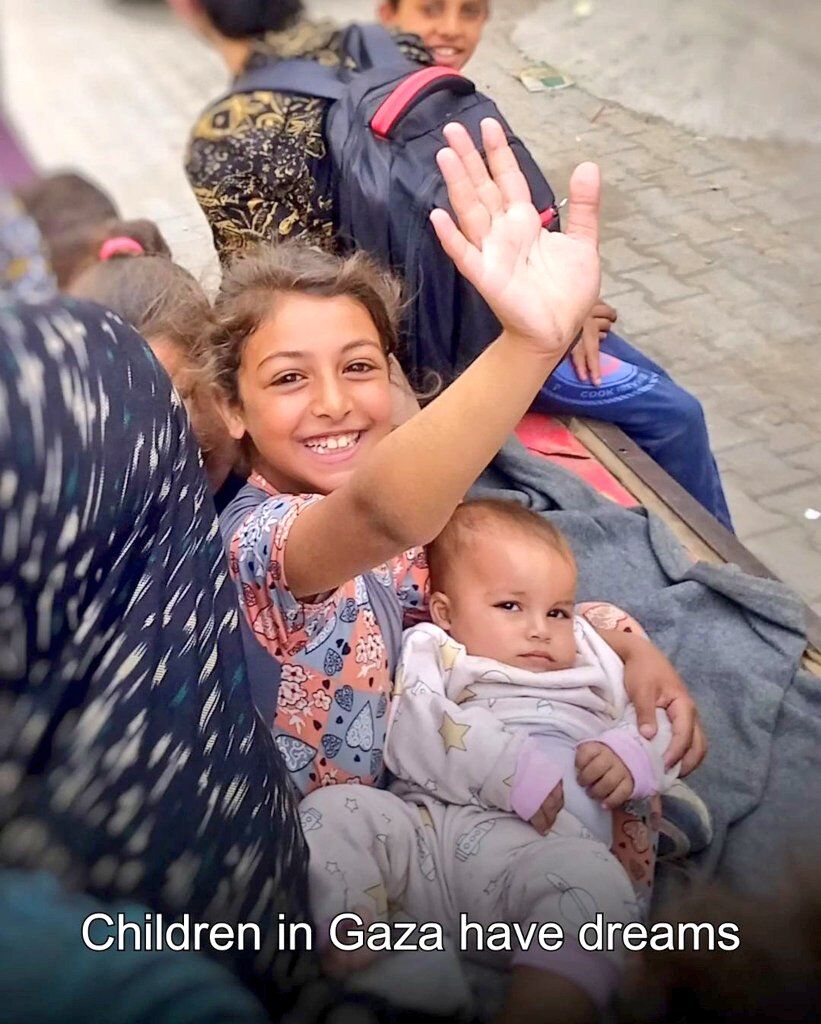




 (@fdogubey1048)
(@fdogubey1048) 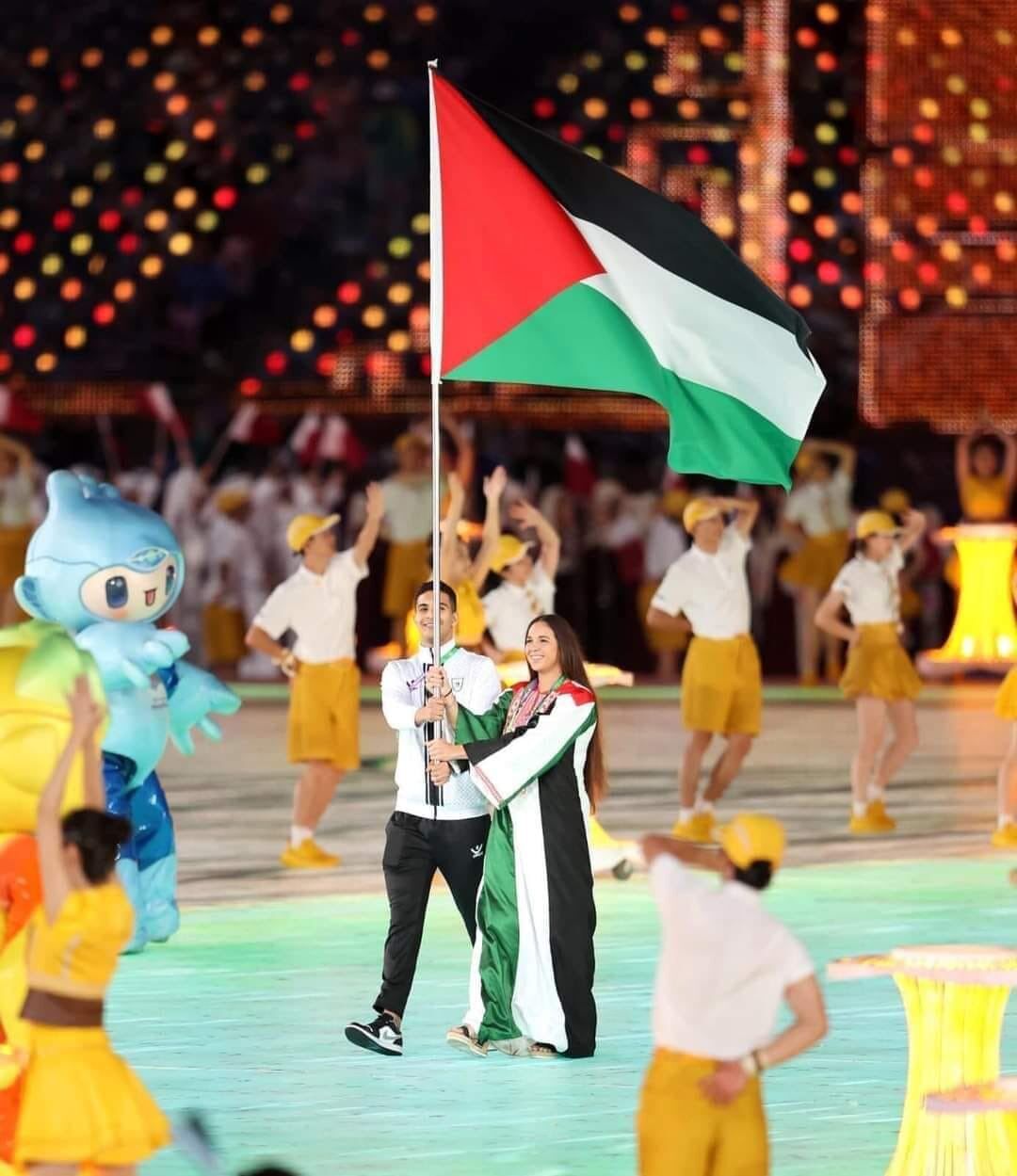

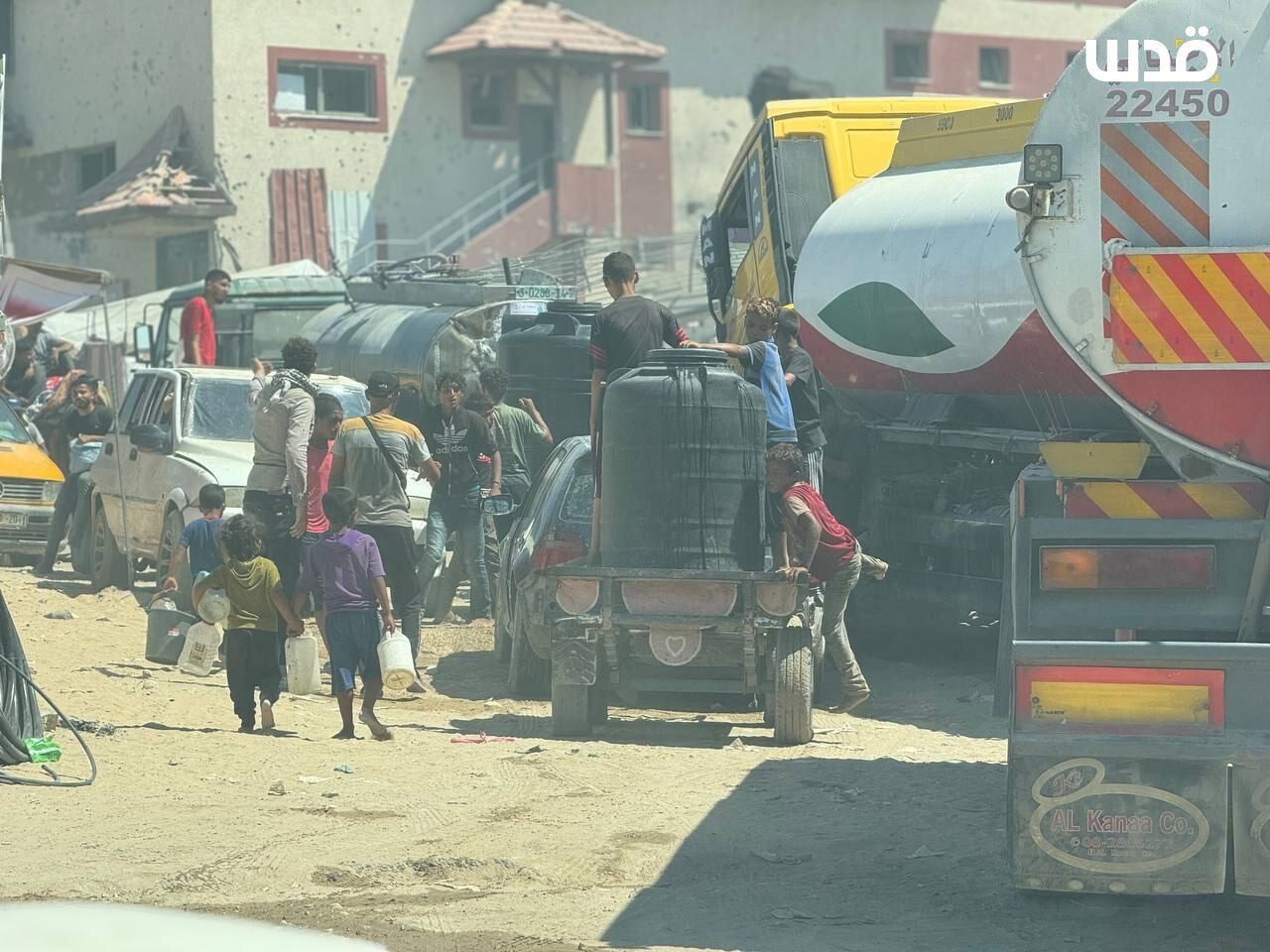
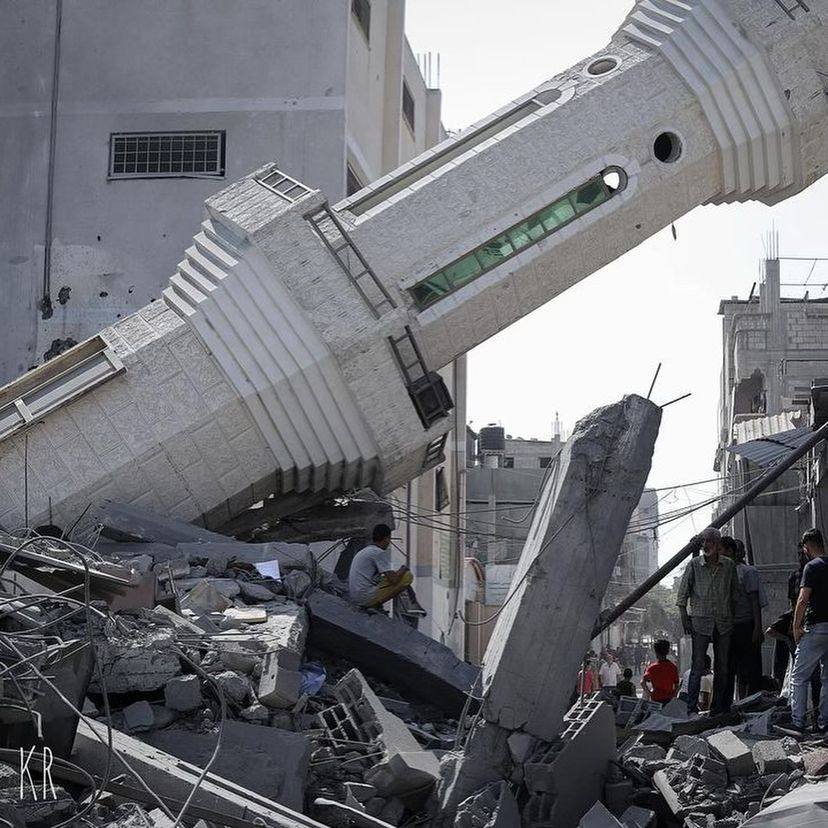


 Scenes showing the extent of destruction in the Al-Rahma Mosque area in Khan Yunis as a result of the occupation’s aggression Gaza Palestine.
Scenes showing the extent of destruction in the Al-Rahma Mosque area in Khan Yunis as a result of the occupation’s aggression Gaza Palestine.  (@Vigilante2801)
(@Vigilante2801)  The Israeli occupation’s airstrike destroyed a mosque in Jaffa, Deir al-Balah, in the central Gaza Strip.
The Israeli occupation’s airstrike destroyed a mosque in Jaffa, Deir al-Balah, in the central Gaza Strip.

